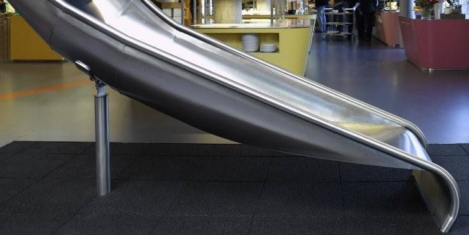September 18, 2017
Nearly half of UK workers lack the digital skills needed by most jobs, despite the rewards on offer
Almost half (43 per cent) of UK adults don’t possess the digital skills required by most jobs, according to the latest Barclays Digital Development Index. The study of 6,000 adults and separate 88,000 job adverts, revealed that nearly two-thirds (63 per cent) of jobs now require basic digital skills such as word processing, database, spreadsheet or social media skills, but 57 percent of UK jobseekers can’t match them to a satisfactory level. This is in spite of the fact that employers are willing to pay a premium for those workers whose IT skills go beyond the basic to include more developed skills such as programming and software design. Staff with these skills can typically expect to command £10,000 more per year over their career. Skills in graphic design, data and 3D modelling can earn people an extra £3,000 per annum.










 Cyber risk is becoming increasingly common while the types of breaches are becoming more diverse, claims a new white paper by the audit and accounting expert BDO. For instance, ransomware is now the fifth most common type of malware; with the cost of freeing up computer systems from ransomware tripling since 2016. Yet organisations are continuing to spend up to four times more on insuring other company assets (e.g. property, equipment etc.) than on cyber insurance, despite an increasingly widespread belief that their cyber assets are in fact up to 14 percent more valuable. The report also finds that as cyber incidents increase, they become more difficult – and therefore more expensive – to defend. In the new cyber insurance white paper, BDO’s global cybersecurity leadership group stresses the importance of businesses gaining an understanding of their unique risk profiles in order to ensure the right cyber insurance for their needs. Cyber insurance: managing the risk does include some of the positive trends around cyber security – for example, both the level of Board involvement and investments in cybersecurity have increased significantly in the last 2-3 years.
Cyber risk is becoming increasingly common while the types of breaches are becoming more diverse, claims a new white paper by the audit and accounting expert BDO. For instance, ransomware is now the fifth most common type of malware; with the cost of freeing up computer systems from ransomware tripling since 2016. Yet organisations are continuing to spend up to four times more on insuring other company assets (e.g. property, equipment etc.) than on cyber insurance, despite an increasingly widespread belief that their cyber assets are in fact up to 14 percent more valuable. The report also finds that as cyber incidents increase, they become more difficult – and therefore more expensive – to defend. In the new cyber insurance white paper, BDO’s global cybersecurity leadership group stresses the importance of businesses gaining an understanding of their unique risk profiles in order to ensure the right cyber insurance for their needs. Cyber insurance: managing the risk does include some of the positive trends around cyber security – for example, both the level of Board involvement and investments in cybersecurity have increased significantly in the last 2-3 years.




 UK employment is predicted to grow strongly in the third quarter of 2017, but wage growth is likely to remain weak, according to the latest CIPD/The Adecco Group Labour Market Outlook. Although the UK labour market remains buoyant, basic pay award expectations for the next 12 months remain at just 1 percent. Put against the backdrop of poor productivity growth, the report points to an increase in labour supply over the past year as a key factor behind the modest pay projection. This is driven by relatively sharp increases in the number of non-UK nationals from the EU, ex-welfare claimants and 50-64 year olds. This increase in labour supply may explain why the jobs market remains challenging for some jobseekers, especially those seeking lower-skilled jobs. Employers report a median number of 24 applicants for the last low-skilled vacancy they tried to fill, compared with 19 candidates for the last medium-skilled vacancy and eight applicants for the last high-skilled vacancy they were seeking to fill. Overall, employers felt that around half of applicants were suitable for each role they were trying to fill.
UK employment is predicted to grow strongly in the third quarter of 2017, but wage growth is likely to remain weak, according to the latest CIPD/The Adecco Group Labour Market Outlook. Although the UK labour market remains buoyant, basic pay award expectations for the next 12 months remain at just 1 percent. Put against the backdrop of poor productivity growth, the report points to an increase in labour supply over the past year as a key factor behind the modest pay projection. This is driven by relatively sharp increases in the number of non-UK nationals from the EU, ex-welfare claimants and 50-64 year olds. This increase in labour supply may explain why the jobs market remains challenging for some jobseekers, especially those seeking lower-skilled jobs. Employers report a median number of 24 applicants for the last low-skilled vacancy they tried to fill, compared with 19 candidates for the last medium-skilled vacancy and eight applicants for the last high-skilled vacancy they were seeking to fill. Overall, employers felt that around half of applicants were suitable for each role they were trying to fill.















September 13, 2017
Banking sector will be ground zero for job losses from artificial intelligence and robotics
by Gordon Fletcher and David Kreps • AI, Comment, Technology
(more…)